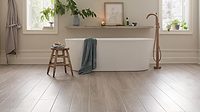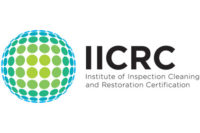Dal-Tile announced its Daltile, American Olean, Marazzi, and Ragno brands’ adoption of the DCOF AcuTest as the sole measurement of a ceramic tile’s coefficient of friction.
Introduced in 2012, the new standard more accurately reflects the real-life uses of tile and flooring products and provides critical information for assessing a product’s suitability for the commercial environment. Beginning in January, the Dal-Tile brands will discontinue reporting of old SCOF standard test results, and will only publish DCOF results.
“At Dal-Tile, we always champion the best solutions for our industry and our customers, which is why we’ve chosen to completely adopt the DCOF AcuTest,” said Lori Kirk-Rolley, vice president, brand marketing, Dal-Tile. “The methodology used by DCOF AcuTest has become the new industry standard because it’s the most accurate way to determine whether or not a product is suitable for a commercial environment. We won’t settle for anything less than the best for our customers. Our customers can be sure, that while the industry standards are changing, the quality they count on from Daltile, American Olean, Marazzi, and Ragno will stay the same. Simply, the best.”
Under the new DCOF scale, a measurement of .42 wet (or greater) is the new standard to look for when specifying products for commercial applications. Dal-Tile will not publish actual DCOF results for floor tile, but will indicate if the results are less than .42.
Dal-Tile will continue to work closely with its customers to help them understand the new test and how to apply the results to their specification decisions. Kirk-Rolley added, “During the transitional period, Dal-Tile will also continue its support of the TCNA’s education efforts to ensure there is complete understanding of the new standard among architects and designers.”
For more information on the correlation between the two values and about the DCOF AcuTest, visit www.daltile.com/dcof, www.americanolean.com/dcof, or the Tile Council of North America’s website: www.tcnatile.com.








